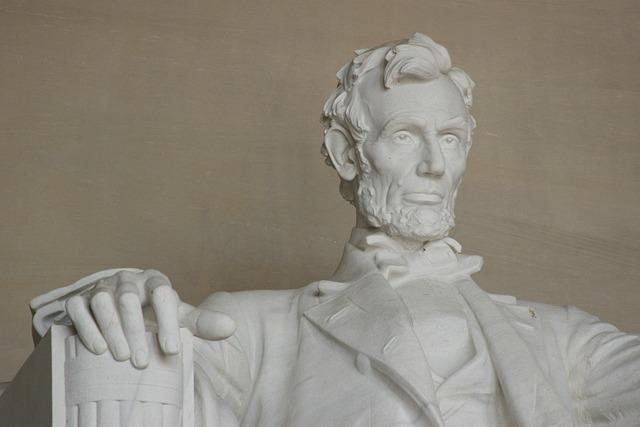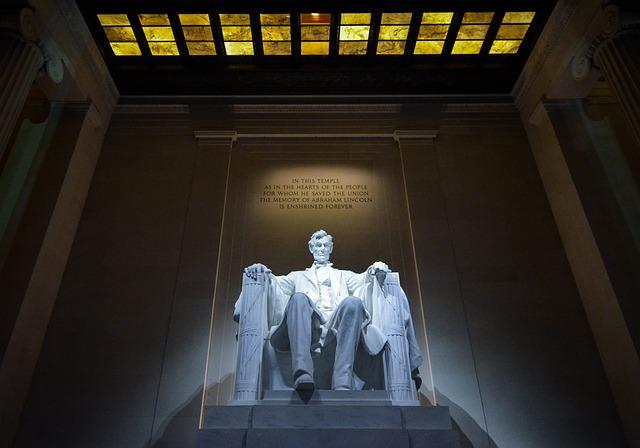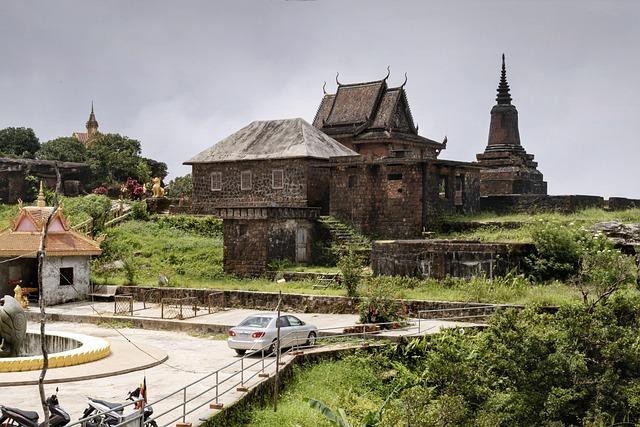In a meaningful advancement in international politics, the United States has officially barred former Argentine President Cristina Fernandez de Kirchner from entering the country, following serious allegations of graft and corruption during her time in office. The decision comes amid ongoing scrutiny of Fernandez de kirchner’s administration,which has been plagued by accusations of financial misconduct and mismanagement. The move not only underscores the US goverment’s stance against corruption but also highlights the broader implications for governance and accountability in Latin America.As the political landscape in Argentina continues to evolve, this action raises critical questions about the intersection of law, politics, and international relations in the fight against corruption.
US Imposes Bar on ex-Argentine President Fernandez de Kirchner Amid Graft Allegations
The United States has taken significant measures in response to ongoing corruption allegations involving former Argentine President Cristina Fernandez de Kirchner. Citing her involvement in corruption and graft during her time in office,the US government has officially barred her from entering the country,a decision that underscores the international ramifications of domestic political scandals. This move is part of a broader effort to combat corruption on a global scale and signals Washington’s disapproval of Fernandez de Kirchner’s governance, marked by accusations of misuse of public funds and quid pro quo arrangements.
Fernandez de Kirchner, who served as president from 2007 to 2015, has consistently denied any wrongdoing. Though, the allegations have raised serious concerns about governance in Argentina and the impact of such actions on the country’s political landscape. The implications of the US’s decision extend beyond the individual, as it may influence Argentina’s current political climate by affecting public perception and the upcoming electoral processes. Key points surrounding this situation include:
Increased scrutiny: The legal and political challenges Fernandez faces may intensify.
International relations: The decision could strain relations between Argentina and the US.
Public trust: These allegations could further erode public confidence in political leaders.

Implications of Graft Accusations on argentinas Political Climate and International Relations
The recent barring of former President Fernández de Kirchner from entering the United States due to graft accusations has significant ramifications for Argentina’s political landscape. This development exposes the fragility of democratic institutions in Argentina and raises questions about the integrity of its political leadership. With a contentious electoral atmosphere already underway, the allegations could further polarize the electorate, prompting a debate about corruption and governance. Political factions are likely to exploit this situation, either to rally support against perceived elitism and betrayal or to discredit their opponents as part of a larger narrative on the health of the nation’s democracy.
Beyond domestic implications, these accusations may also impact Argentina’s international relations, especially with the United States and other Western nations.Argentina’s ability to attract foreign investment could suffer if potential investors view the political turmoil as indicative of systemic corruption. Countries that emphasize rule-of-law and governance criteria in their foreign investments may reconsider their strategies considering this new evidence. Furthermore, regional dynamics in South America could shift as left-leaning governments navigate their relationships with a potentially ostracized Argentina, gauging their responses based on the outcomes of these graft allegations.

Analysis of US Action: legal Precedents and the Global Fight Against Corruption
The recent barring of former Argentine president Cristina Fernandez de Kirchner from entering the United States due to corruption allegations exemplifies a growing trend in international governance where legal precedents are becoming instrumental in reinforcing anti-corruption measures. the U.S. has steadily positioned itself as a key player in promoting transparency and accountability across the globe. By invoking the Foreign Corrupt Practices Act and employing travel bans as a tactic, U.S. actions reflect an evolving understanding of how domestic laws can influence international politics and ethics. This move aims not only to hold Culprits accountable, but also to signal that corrupt practices will not be tolerated, nonetheless of the political stature of individuals involved.
Furthermore, the implications of such a legal decision resonate beyond Argentina, serving as a crucial reminder to other nations grappling with corruption. Countries that fail to uphold political accountability may find themselves at risk of international isolation, both politically and economically. The potential fallout might lead to an critically important shift in how governments perceive the necessity of engaging in anti-corruption efforts. Key considerations include:
Increased Scrutiny: Governments may face heightened surveillance from international bodies.
Legal Collaboration: Countries could strengthen ties to combat corruption collectively.
Public Trust: Effective governance may enhance citizen engagement and trust in state institutions.

Recommendations for Strengthening Anti-Corruption Measures in Latin America Following Recent Developments
The recent developments surrounding allegations of corruption against former Argentine president Cristina Fernandez de Kirchner highlight the urgent need for more robust anti-corruption frameworks in Latin America. Countries in this region can benefit from implementing complete reforms that focus on transparency and accountability. Key recommendations to strengthen these measures include:
Enhancing Transparency in Governance: Implementing open data initiatives that disclose government contracts and spending can help reduce opportunities for graft.
Strengthening Judicial Independence: Establishing stronger protections for whistleblowers and ensuring that the judiciary operates without political interference are critical to holding corrupt officials accountable.
Promoting Civil Society Engagement: Engaging non-governmental organizations and citizens in monitoring governmental actions and exposing corruption can amplify public scrutiny.
Regional Cooperation: Countries should collaborate on sharing intelligence and best practices related to anti-corruption strategies to build a cohesive front against graft.
To further support these initiatives, Latin American nations could benefit from developing a unified framework for assessing corruption risks. A proposed corruption Risk Assessment Table could serve as a guideline for governments and organizations:
risk Factor
Assessment Criteria
Political Stability
Frequency of changes in leadership and political turmoil.
Public Sector Accountability
Mechanisms for reporting and penalizing corrupt behavior.
Civic Engagement
Level of citizen participation in governance and oversight.
Judicial Effectiveness
rate of triumphant prosecutions for corruption cases.

Closing remarks
the recent decision by U.S.authorities to bar former Argentine President Cristina Fernández de Kirchner from entering the United States marks a significant development in the ongoing scrutiny of her tenure amid allegations of graft. This action underscores the broader implications of anti-corruption efforts and the international dimensions of legal accountability for high-ranking officials. As the legal landscape continues to evolve, both in Argentina and beyond, the impact of these allegations on Fernández de kirchner’s political career and her party’s future remains to be seen. With global attention fixed on these proceedings, the outcome will likely influence not only Argentina’s political climate but also international perceptions of governance and integrity. As the story unfolds, further developments are anticipated, and Reuters will continue to provide updates on this unfolding situation.
Author : Caleb Wilson
Publish date : 2025-03-23 15:30:17
Copyright for syndicated content belongs to the linked Source.